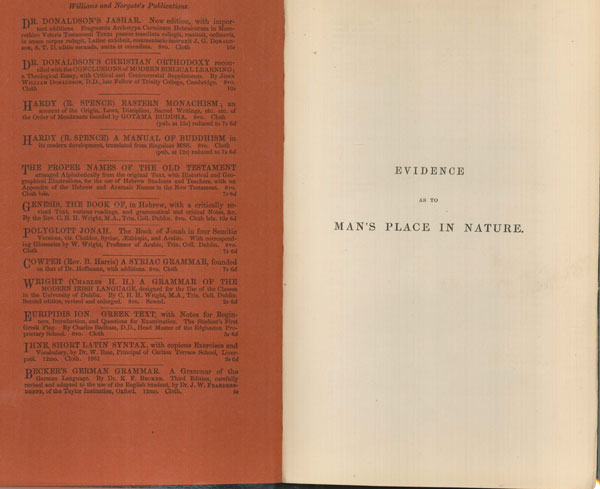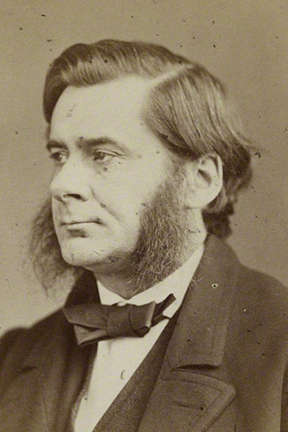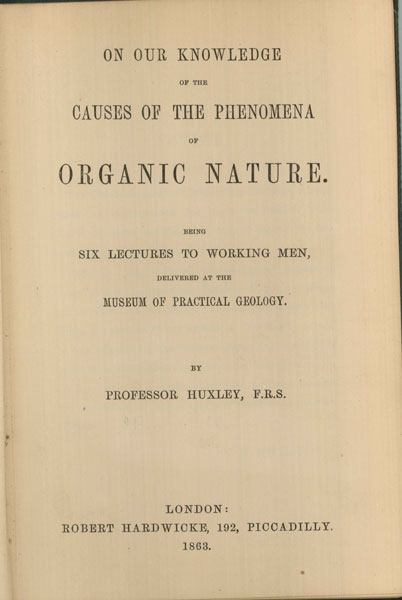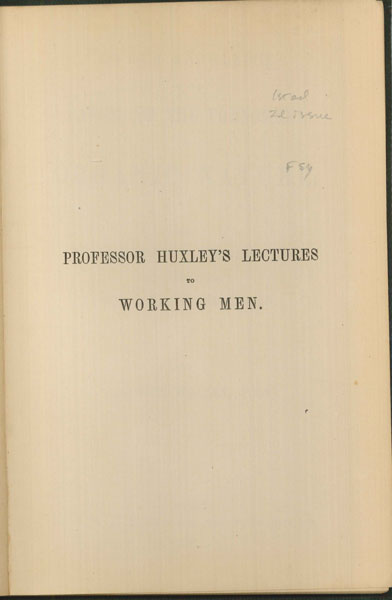Written by Melinda Creech, Graduate Assistant, Armstrong Browning Library
Thomas Henry Huxley was an English biologist who supported Charles Darwin’s theory of evolution. His famous debate with Charles Wilberforce promoted a wider acceptance of evolution. He also coined the word “agnostic” to describe his position with regard to theology. Huxley wrote on many issues relating biology to the humanities, particularly evolution and ethics.
The Armstrong Browning Library owns four letters written by Huxley and eight books authored by him. 
Letter from Thomas Henry Huxley to T. G. Bonney. 05 November 1882.
In this letter to the English geologist, T. G. Bonney, Huxley discusses their participation in the Darwin Commission.

Thomas Henry Huxley. Evidence as to Man’s Place in Nature. London; Edinburgh: Williams and Norgate, 1863.
In this first edition volume, Huxley gives evidence for the evolution of man and apes from a common ancestor. It was the first book devoted to the topic of human evolution.
Thomas Henry Huxley. On Our Knowledge of the Causes of the Phenomena of Organicnature. Being Six Lectures to Working Men, Delivered at the Museum of Practical Geology. London: Robert Hardwicke, 1863.
Huxley developed his ideas on evolution from 1860–63, presenting them in lectures to working men, students, and the general public. In 1862 a series of talks to working men was printed lecture by lecture as pamphlets and later bound up as a little green book. This volume is a first edition of those lectures. The Table of Contents describes the six lectures which were delivered by Thomas Henry Huxley.






